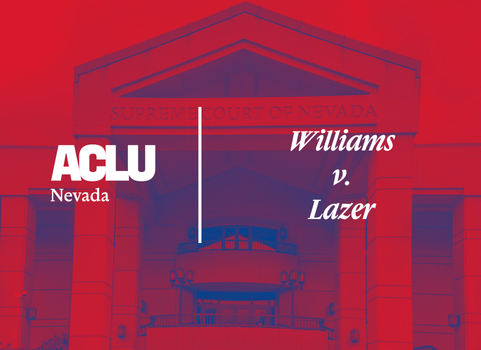Williams v. Lazer
- Filed: January 4, 2021
- Status: Closed (Judgment)
- Court: Supreme Court of Nevada
- Latest Update: Jan 06, 2021

Stay Informed
Sign up to be the first to hear about how to take action.
By completing this form, I agree to receive occasional emails per the terms of the ACLU’s privacy statement.
By completing this form, I agree to receive occasional emails per the terms of the ACLU’s privacy statement.
